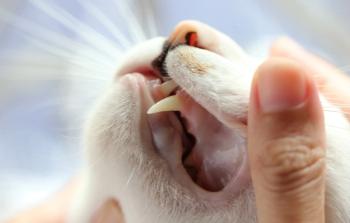
- dvm360 January 2022
- Volume 53
- Issue 1
Work-life balance in veterinary medicine: Findings and solutions
Data show room for improvement and a correlation between disequilibrium and burnout.
Poor work-life balance is a major problem in the veterinary industry and among the top reasons these professionals may be inclined to leave the field, according to a recent study.1 Led by Veterinary Integration Solutions and Galaxy Vets, the Burnout and Work-Life Balance Study in the Veterinary Profession 2021 has unveiled some thought-provoking facts surrounding work-life balance, with the goal of inspiring change within the profession to promote veterinary well-being.
The findings
The study discovered a positive correlation between professional fulfilment and work-life balance and a negative correlation between work-life balance and burnout.1 In other words, the lower an individual’s work-life balance, the higher the burnout—and vice versa.
The study also demonstrated that work-life balance is challenging for all veterinary professionals—especially for women, who reported significantly lower work-life balance than men.1
“There are probably a lot of reasons [women report lower work-life balance than men]. One interpretation might be the traditional societal norms in which women usually take on more of the at-home and/or caretaking responsibilities in addition to their full-time work responsibilities,” said Lauren Catenacci, PhD, head of people and culture at Galaxy Vets, in an interview with dvm360®.
“Given that the majority of veterinary professionals are women, this is a relationship we will be exploring in more detail in the future so we can truly understand why it exists and, more importantly, how we can restore the balance,” she added.
Additionally, the research found that each age group in the veterinary profession had similarly low work-life balance, except for those older than 61 years.1
Catenacci suggested that although the results demonstrate a relationship—not a causation—some reasons that individuals older than 61 years may have a more stable work-life balance include having adjusted to their caseload in anticipation for retirement, having more financial stability that allows them to limit their working schedules, and being less likely to have young kids who require more care and time outside work.
What’s more, the study showed no major difference in work-life balance with a breakdown of roles and specializations. Plus, the mean score on the work-life balance scale decreased as the number of patients seen per day increased, implying caseload has a significant effect on the work-life balance.1
“If we look at our results as a whole, it is reasonable to speculate that the high caseload could be a contributing factor [to all roles and specializations revealing a similarly low work-life balance]. After all, the entire health care team is involved in serving patients and their journey, and all members of the team can potentially suffer from work-life imbalance and subsequent burnout when the number of appointments is overwhelming,” Catenacci said.
Improving work-life balance
Most study participants—65.7%—suggested that they would like for management to help them achieve better work-life balance.1 If you’re a practice manager, some suggested methods for accomplishing this include the following2:
- Avoid using compensation models that incentivize long hours.
- Provide flexible scheduling and part-time employment.
- Increase support for parents.
- Hire relief veterinarians to lessen the workload.
- Do not promote heroism.
- Communicate with and listen to your team.
- Sponsor healthy off-site activities.
For veterinary professionals to improve their work-life balance themselves, the American Veterinary Medical Association3 suggests the following:
- Decrease your time at work (eg, establish a flexible work schedule, learn to say “no,” plan time off for important celebrations throughout the year).
- Implement positive changes in your workplace (eg, don’t take work home, aim to leave on time, eat lunch away from work at least once a week).
- Maximize time outside work (eg, keep a list of running errands for organization, put technology devices aside when spending time with friends and family, get familiar with friends and neighbors who can help share childcare or eldercare responsibilities).
Conclusion
Poor work-life balance is an issue plaguing the veterinary profession, and recent research shows it affects all those in the field despite discrepancies among different populations. Because work-life balance is directly related to burnout, it is critical that both practice managers and team members take necessary steps to support work-life balance. Along with enhancing team members’ mental health, these steps will also help keep veterinary professionals in a field that is already highly understaffed while allowing staff to retain the initial love and passion they had to pursue veterinary medicine.
References
- Burnout and work-life balance study in the veterinary profession 2021. Veterinary Integration Solutions. November 10, 2021. Accessed December 9, 2021.
https://vetintegrations.com/insights/burnout2021/ - 7 strategies to support work-life balance for your veterinary team. dvm360®. October 1, 2021. Accessed December 13, 2021.
https://www.dvm360.com/view/7-strategies-to-support-work-life-balance-for-your-veterinary-team - Work-life balance and boundaries. American Veterinary Medical Association. Accessed December 13, 2021.
https://www.avma.org/resources-tools/wellbeing/work-life-balance-boundaries
Articles in this issue
almost 4 years ago
Convert an existing building into a veterinary hospitalalmost 4 years ago
Diabetes management: Can we do a better job?about 4 years ago
Key advances in veterinary oncologyabout 4 years ago
The Dilemma: The referenceabout 4 years ago
Commentary: How do you define success?about 4 years ago
“I” message vs “You” messageabout 4 years ago
Multicancer detection in dogs with cell-free DNAabout 4 years ago
How One Health is forging a better futureNewsletter
From exam room tips to practice management insights, get trusted veterinary news delivered straight to your inbox—subscribe to dvm360.





